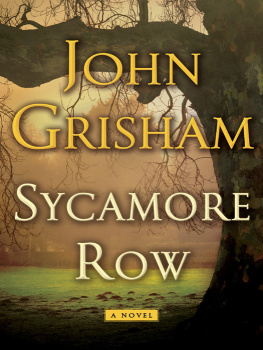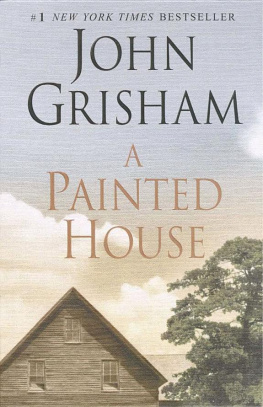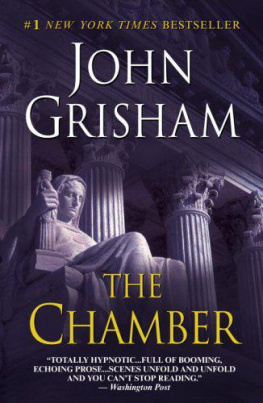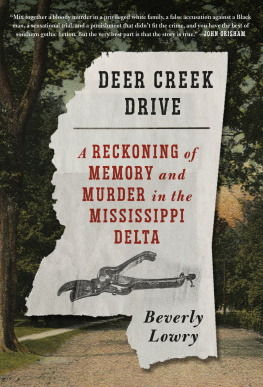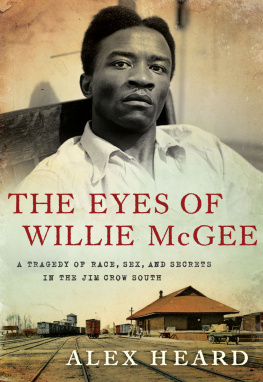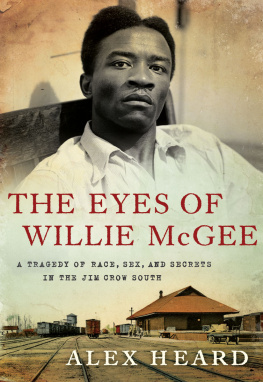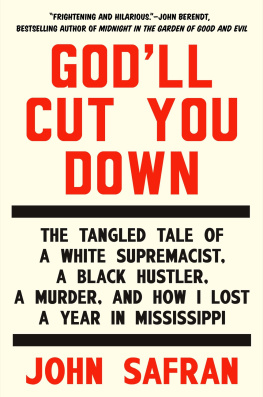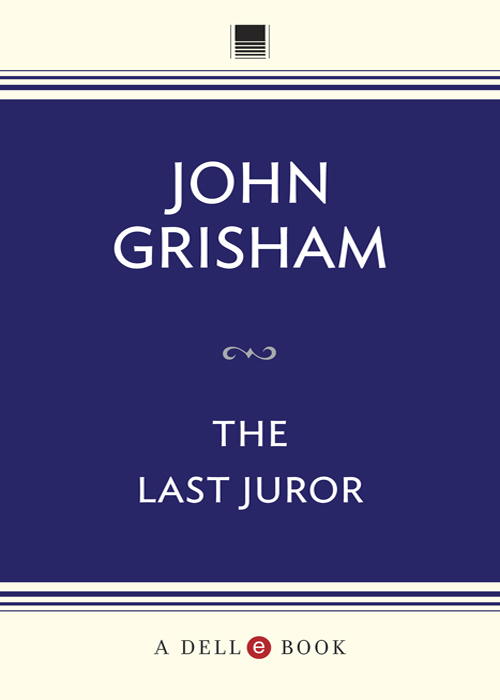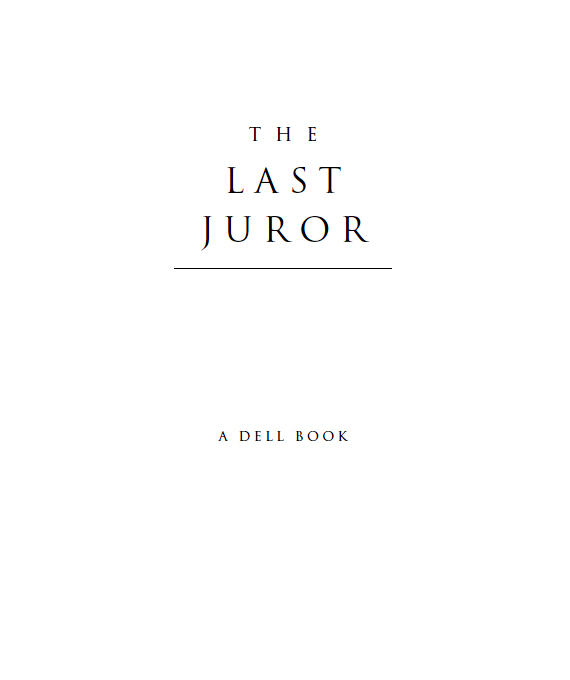PART
ONE

C HAPTER 1
A fter decades of patient mismanagement and loving neglect, The Ford County Times went bankrupt in 1970. The owner and publisher, Miss Emma Caudle, was ninety-three years old and strapped to a bed in a nursing home in Tupelo. The editor, her son Wilson Caudle, was in his seventies and had a plate in his head from the First War. A perfect circle of dark grafted skin covered the plate at the top of his long, sloping forehead, and throughout his adult life he had endured the nickname of Spot. Spot did this. Spot did that. Here, Spot. There, Spot.
In his younger years, he covered town meetings, football games, elections, trials, church socials, all sorts of activities in Ford County. He was a good reporter, thorough and intuitive. Evidently, the head wound did not affect his ability to write. But sometime after the Second War the plate apparently shifted, and Mr. Caudle stopped writing everything but the obituaries. He loved obituaries. He spent hours on them. He filled paragraphs of eloquent prose detailing the lives of even the humblest of Ford Countians. And the death of a wealthy or prominent citizen was front page news, with Mr. Caudle seizing the moment. He never missed a wake or a funeral, never wrote anything bad about anyone. All received glory in the end. Ford County was a wonderful place to die. And Spot was a very popular man, even though he was crazy.
The only real crisis of his journalistic career happened in 1967, about the time the civil rights movement finally made it to Ford County. The paper had never shown the slightest hint of racial tolerance. No black faces appeared in its pages, except those belonging to known or suspected criminals. No black wedding announcements. No black honor students or baseball teams. But in 1967, Mr. Caudle made a startling discovery. He awoke one morning to the realization that black people were dying in Ford County, and their deaths were not being properly reported. There was a whole, new, fertile world of obituaries waiting out there, and Mr. Caudle set sail in dangerous and uncharted waters. On Wednesday, March 8, 1967, the Times became the first white-owned weekly in Mississippi to run the obituary of a Negro. For the most part, it went unnoticed.
The following week, he ran three black obituaries, and people were beginning to talk. By the fourth week, a regular boycott was under way, with subscriptions being canceled and advertisers holding their money. Mr. Caudle knew what was happening, but he was too impressed with his new status as an integrationist to worry about such trivial matters as sales and profits. Six weeks after the historic obituary, he announced, on the front page and in bold print, his new policy. He explained to the public that he would publish whatever he damned well pleased, and if the white folks didnt like it, then he would simply cut back on their obituaries.
Now, dying properly is an important part of living in Mississippi, for whites and blacks, and the thought of being laid to rest without the benefit of one of Spots glorious send-offs was more than most whites could stand. And they knew he was crazy enough to carry out his threat.
The next edition was filled with all sorts of obituaries, blacks and whites, all neatly alphabetized and desegregated. It sold out, and a brief period of prosperity followed.
The bankruptcy was called involuntary, as if others had eager volunteers. The pack was led by a print supplier from Memphis that was owed $60,000. Several creditors had not been paid in six months. The old Security Bank was calling in a loan.
I was new, but Id heard the rumors. I was sitting on a desk in the front room of the Timess offices reading a magazine, when a midget in a pair of pointed toes strutted in the front door and asked for Wilson Caudle.
Hes at the funeral home, I said.
He was a cocky midget. I could see a gun on his hip under a wrinkled navy blazer, a gun worn in such a manner so that folks would see it. He probably had a permit, but in Ford County one was not really needed, not in 1970. In fact, permits were frowned upon. I need to serve these papers on him, he said, waving an envelope.
I was not about to be helpful, but its difficult being rude to a midget. Even one with a gun. Hes at the funeral home, I repeated.
Then Ill just leave them with you, he declared.
Although Id been around for less than two months, and though Id gone to college up North, I had learned a few things. I knew that good papers were not served on people. They were mailed or shipped or hand-delivered, but never served. The papers were trouble, and I wanted no part of them.
Im not taking the papers, I said, looking down.
The laws of nature require midgets to be docile, noncombative people, and this little fella was no exception. The gun was a ruse. He glanced around the front office with a smirk, but he knew the situation was hopeless. With a flair for the dramatic, he stuffed the envelope back into his pocket and demanded, Wheres the funeral home?
I pointed this way and that, and he left. An hour later, Spot stumbled through the door, waving the papers and bawling hysterically. Its over! Its over! he kept wailing as I held the Petition for Involuntary Bankruptcy. Margaret Wright, the secretary, and Hardy, the pressman, came from the back and tried to console him. He sat in a chair, face in hands, elbows on knees, sobbing pitifully. I read the petition aloud for the benefit of the others.
It said Mr. Caudle had to appear in court in a week over in Oxford to meet with the creditors and the Judge, and that a decision would be made as to whether the paper would continue to operate while a trustee sorted things out. I could tell Margaret and Hardy were more concerned about their jobs than about Mr. Caudle and his breakdown, but they gamely stood next to him and patted his shoulders.
When the crying stopped, he suddenly stood, bit his lip, and announced, Ive got to tell Mother.
The three of us looked at each other. Miss Emma Caudle had departed this life years earlier, but her feeble heart continued to work just barely enough to postpone a funeral. She neither knew nor cared what color Jell-O they were feeding her, and she certainly cared nothing about Ford County and its newspaper. She was blind and deaf and weighed less than eighty pounds, and now Spot was about to discuss involuntary bankruptcy with her. At that point, I realized that he, too, was no longer with us.




